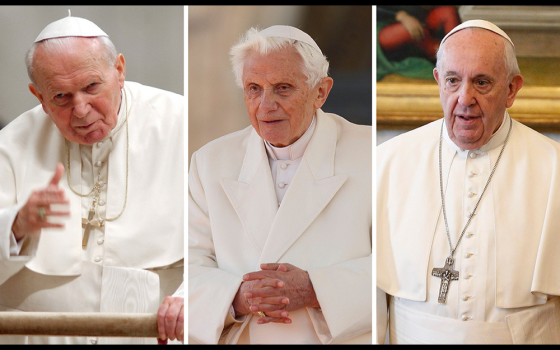This election, even more than the last two, has exposed some of the deepest fault lines in the American experience. Issues of race, class and religion stalk every campaign speech, every campaign advertisement, every poll and every pundit. While the most defining characteristic of this election so far the split between those who lack a college education and those who achieved one, these deeper cultural third rails are too obvious to ignore. Fortunately, two recently published books help us get past the brouhaha of the campaign to an examination of the underlying cultural realities. Today, I shall begin a review of the first of these books, Nancy Isenberg's White Trash. The 400-Year Untold History of Class in America.
Isenberg sets out to correct the American habit of ignoring, or at least isolating, evidence of class, minimizing its significance as anecdotal or trivial. We recall the impoverished roots of those few who got lucky, found an upper class patron, and climbed out of poverty, but ignore those who weren't so lucky and attribute their bad fortune to a lack of drive. We read To Kill a Mockingbird and recognize the racial animus of Robert E. Ewell, but we pass over Harper Lee's description of his family: "No truant officer could keep their numerous offspring in school; no public health officer could free them from congenital defects, various worms, and diseases indigenous to filthy surroundings." We use the term "white trash" and do not think of its historic antecedents. Isenberg aims to put that history before us in ways we cannot ignore. "Our cherished myths are at once bolstering and debilitating," she writes, and then seeks to remove the source of debilitation.
The tale begins with the first English settlements. "British colonists promoted a dual agenda: one involved reducing poverty back in England, and the other called for transporting the idle and unproductive to the New World," she writes. "[M]ost colonizing schemes that took root in seventeenth- and eighteenth-century British America were built on privilege and subordination, not any kind of proto-democracy. The generation of 1776 certainly underplayed that fact. And all subsequent generations took their cue from the nation's founders."
It never took much to deconstruct the founding of Jamestown: The myth of Pocahantas was known to be a myth by the people who started it. Jamestown was always a business enterprise, unconcerned with achieving democratic goals or new births of freedom. And this first British colony was teeming with indentured servants, some who sought to escape debtors' prison or other punishments for petty crimes back home, some who simply wished to escape acute poverty. Those who funded the enterprise viewed the human capital as the waste it was, and seventeenth century England used such language about its lowest classes: "Colonies ought to be Emunctories or Sinkes of Statesl to drayne away the filth" wrote John White in 1630 tract The Planters Plea. It was the land that conferred profit and from the very beginning, ownership of property was reserved for the few, and those few kept the reins of political power firmly in their own grasp.
Most of us grow up learning that the Pilgrims landed at Plymouth, in search of religious freedom. The date never rang completely true, five years before the reign of Charles I and thirteen years before William Laud became Archbishop of Canterbury and commenced a more rigorous persecution of the Puritans. And, surely the Pilgrims found as much religious liberty as a person could want during their sojourn in Holland. But, Holland did not offer them the Pilgrims commercial avenues they desired and so they set out for America. The early Puritans certainly did wish to escape what they denounced as the remnants of popery in England, but "[f]or every religious dissenter in the exodus of the 1630s, there was one commercially driven emigrant from London or other areas of England." Soon, indentured servants hired to do menial labor were joined by African slave, and both were lumped with Native Americans in their inability to enjoy any political or legal rights in the "City on a Hill."
The Constitution of Carolina was the handiwork of John Locke, yes that John Locke. He created titles of nobility that were as fanciful as the land was inhospitable: caciques and landgraves. He called for a court of heraldry. A Palatine Court of eight proprietors was the principal ruling body, and its veto power over legislation was absolute. Locke also prescribed a kind of serf, named "Leet-men," who were bound to the land and to their "lord," who could lease their services to others. The "Leet-men" ranked above slaves in the social hierarchy but like the slaves, their condition was hereditary in Locke's constitutional scheme: "All the children of Leet-men shall be Leet-men, so to all generations." Locke's constitution was, as Isenberg terms it, "a declaration of war against poor settlers."
The founding fathers do not fare very well either when placed under Isenberg's lens. We have long had trouble reconciling Thomas Jefferson's literary odes to liberty with his ownership of slaves, but Isenberg points to a kind of social Darwinism before Darwin, a proto-eugenicist strain of thought, in the great man's thinking. "The circumstance of superior beauty is thought worthy of attention in the propagation of our horses, dogs, and other domestic animals;" the sage of Monticello wrote in Notes on the State of Virginia in 1787, "why not in that of man?" Yikes! Benjamin Franklin's tale of rags to riches is shown to be not quite the result of honest industry, or even uncommon genius: Franklin, the first real "self-made man" in American iconography, had mentors and patrons along the way. His theory of breeding, articulated in his 1751 essay "Observations Concerning the Increase of Mankind," foresaw idleness being "bred out of the English constitution" by patents whose large families encouraged industrious and by the necessity of hard work along the frontier: You would work or you would die. I do give Franklin credit for his satire "The Speech of Miss Polly Baker," in which he champions a woman who produced five illegitimate children, forever requiring a little less certainty from those who champion the Christian ideals of the founding fathers.
It has been a long time since I was in high school, but I don't remember any of this in Mr. Feltz's Social Studies class. Our images of sturdy Pilgrims seeking religious freedom, or our readings in Jefferson's odes about an egalitarian America built upon the yeomen farmers he thought the bedrock of democracy, or Ben Franklin's pithy tributes to personal thrift and industry, those I remember. Isenberg shows us that just beyond the set pieces of patriotism, there were poor people, and that their poverty tended to provoke a sense of indignation from their betters, not a sense of charity: So much for the view of early America as a "Christian republic." I will pick up this review tomorrow.
[Michael Sean Winters is NCR Washington columnist and a visiting fellow at Catholic University's Institute for Policy Research and Catholic Studies.]


